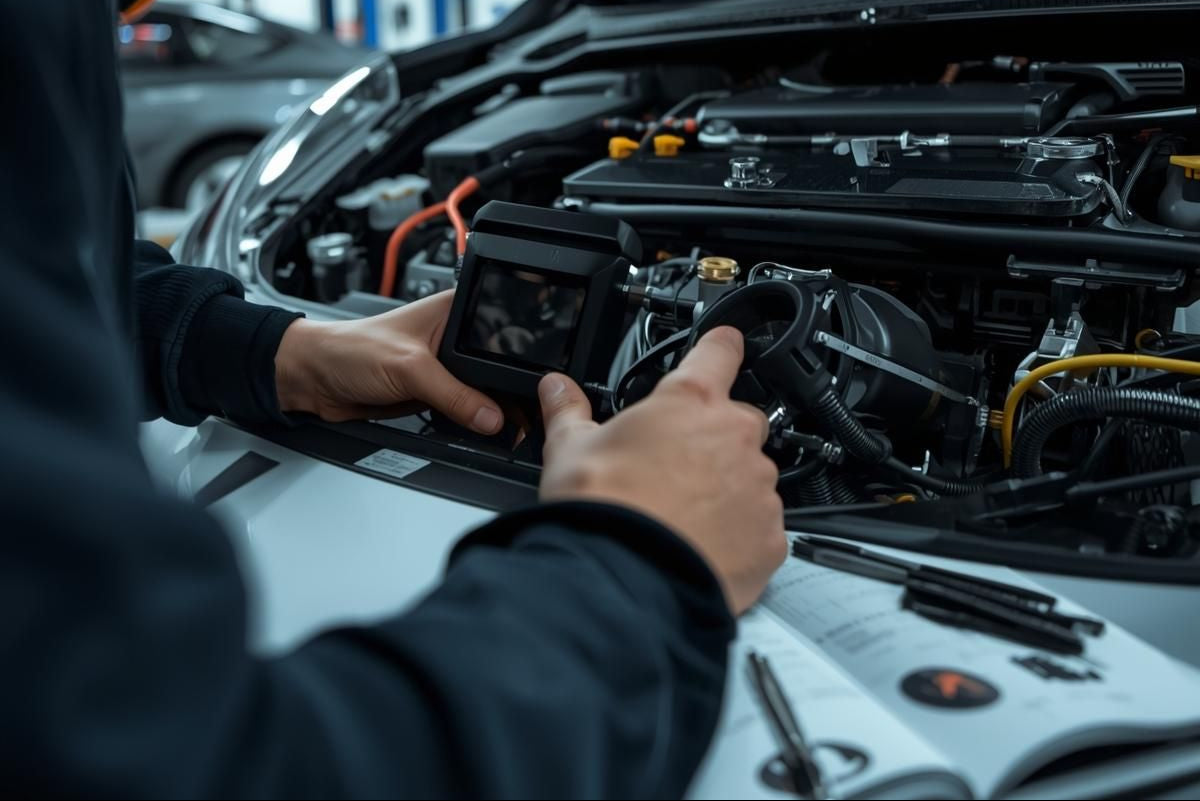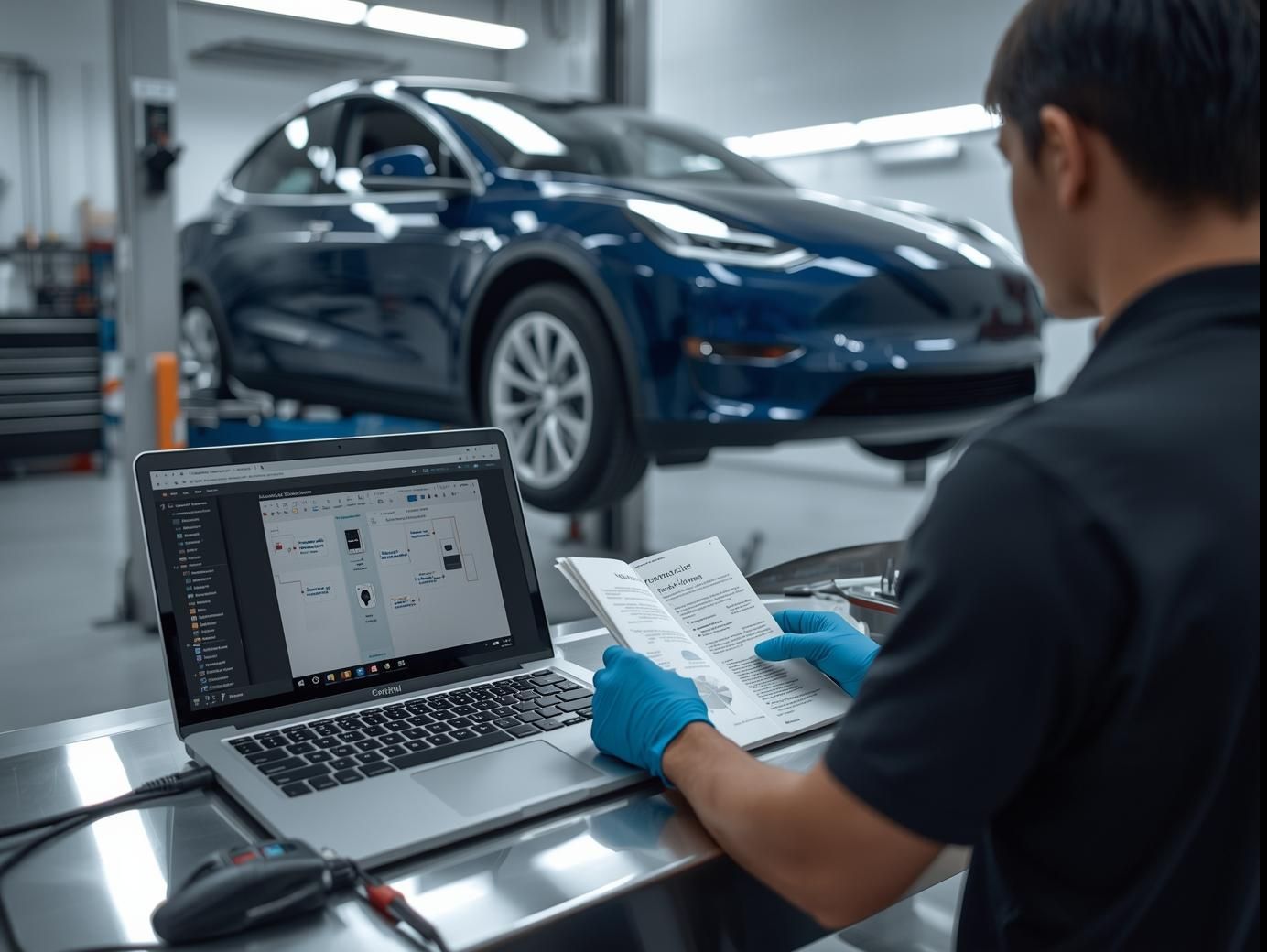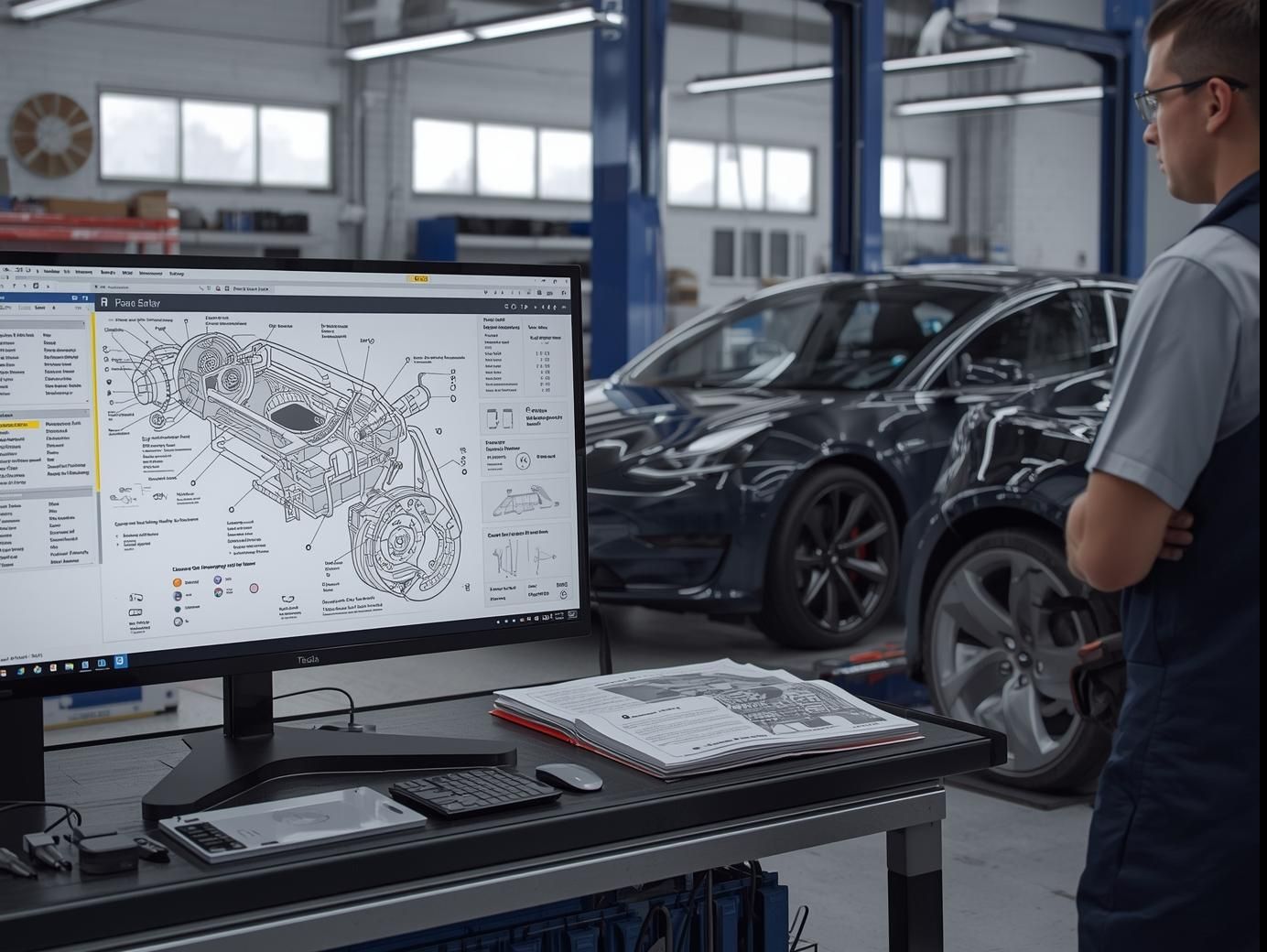Tesla Service Manuals & Professional Tooling
Tesla Service Manuals & Professional Tooling
Get official repair information, model-specific manuals, and professional-grade tools to service your Tesla safely and accurately.


Your Complete Source for Tesla Repair Information
Working on a Tesla requires more than basic automotive knowledge. From advanced electronics to proprietary components, these vehicles demand precise instructions and the right equipment. That’s why we provide access to official Tesla service manuals, professional-grade Tesla diagnostic tools, and accurate Tesla parts lookup resources. So repairs and maintenance can be done correctly the first time.

Why Service Manuals Matter for Tesla Repairs
A Tesla repair manual is more than just a guide — it’s a detailed technical resource covering step-by-step procedures, wiring diagrams, torque specifications, and safety protocols. Whether you’re a professional mechanic or a skilled DIYer, having the correct documentation ensures that repairs meet factory standards.
We support the Tesla right to repair initiative by helping owners and independent shops gain the technical knowledge they need without relying solely on factory service centers.
Tesla Service Manual Library
We offer access to manuals for every current Tesla model, including:
-

Tesla Model 3 service manual
View ManualPopular among independent repair shops, covering everything from brake service to battery removal.
-

Tesla Model Y service manual
View ManualDetailed procedures for diagnostics, software updates, and component replacements.
-

Tesla Model S service manual
View ManualIncludes maintenance schedules, troubleshooting charts, and wiring diagrams.
-

Tesla Model X service manual
View ManualCovers liftgate repairs, HVAC servicing, and suspension adjustments.
Tesla Diagnostic Tools & Equipment
Our tooling solutions are designed to interface with Tesla’s onboard systems, enabling:
Fault code reading and clearing
Battery and BMS diagnostics
Firmware updates and module resets
We supply industry-grade Tesla diagnostic tools compatible with multiple models and software platforms. Whether you're performing basic maintenance or advanced repairs, our tools help you work with precision.

Tesla Parts Lookup & Repair Information
Need to identify a specific component or verify compatibility? Our Tesla parts lookup system helps you find exact part numbers, diagrams, and availability across models.
We also provide verified Tesla repair manuals and technical bulletins that cover common issues, service procedures, and safety protocols.
How to Access Tesla Repair Manuals and Information
Tesla provides official Tesla repair information through its service portal, but it often requires registration and a paid subscription. We assist customers by:
Helping navigate Tesla’s official documentation site
Guiding on legal access to service manuals
Offering training on how to use repair databases and tools effectively
Who Can Benefit from Our Services?
Independent EV repair shops expanding into Tesla servicing
Fleet operators managing multiple Tesla vehicles
Skilled DIY owners looking for technical accuracy
Training programs teaching EV repair fundamentals
Frequently Asked Questions
Yes, many independent shops service Teslas, provided they have the correct technical resources, certified technicians, and approved equipment.
Some maintenance tasks can be done at home if you have the right skills and safety knowledge. However, complex electrical or structural repairs should be handled by trained professionals.
Yes. Many repairs require precision instruments and equipment designed specifically for electric vehicles, such as high-voltage safety gear and calibration devices.
Each Tesla has specific part numbers based on its model, year, and configuration. Using the wrong part can cause compatibility issues, so it’s important to verify before ordering.
Only if you have proper training and safety equipment. High-voltage systems can be dangerous and should be handled with extreme caution.
Yes, many independent shops service Teslas, provided they have the correct technical resources, certified technicians, and approved equipment.
They require less frequent maintenance than gasoline vehicles, but they still need inspections, software updates, and component servicing to ensure long-term reliability.





